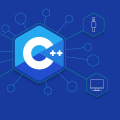Clojure is a powerful functional language that has revolutionized programming. It is an open-source language that offers a unique approach to coding, allowing developers to write code in an efficient and concise way. With its strong type system and robust support for Clojure is a powerful functional language that has revolutionized programming. It is an open-source language that offers a unique approach to coding, allowing developers to write code in an efficient and concise way. With its strong type system and robust support for LISP programming, Clojure is becoming increasingly popular amongst developers. In addition, ERLANG is another language that shares similar features with Clojure, making it a great alternative for developers looking for a LISP programming language. In this article, we'll explore Clojure and ERLANG and provide a comprehensive overview of their features and applications. Clojure is a powerful functional language that has revolutionized programming. It is an open-source language that offers a unique approach to coding, allowing developers to write code in an efficient and concise way. With its strong type system and robust support for LISP programming, Clojure is becoming increasingly popular amongst developers. In addition, ERLANG is another language that shares similar features with Clojure, making it a great alternative for developers looking for a LISP programming language. In this article, we'll explore Clojure and ERLANG and provide a comprehensive overview of their features and applications. programming, Clojure is becoming increasingly popular amongst developers. In addition, ERLANG is another language that shares similar features with Clojure, making it a great alternative for developers looking for a LISP programming language. In this article, we'll explore Clojure and ERLANG and provide a comprehensive overview of their features and applications. Clojure is a powerful functional language that has revolutionized programming. It is an open-source language that offers a unique approach to coding, allowing developers to write code in an efficient and concise way. With its strong type system and robust support for LISP programming, Clojure is becoming increasingly popular amongst developers. In addition, ERLANG is another language that shares similar features with Clojure, making it a great alternative for developers looking for a LISP programming language. In this article, we'll explore Clojure and ERLANG and provide a comprehensive overview of their features and applications.
Clojure has a wide range of features that make it an ideal choice for a variety of projects. It is an expressive language that allows for rapid development, making it perfect for applications that require fast turnaround times. Its type system is rigorous and precise, making it a great choice for mission-critical applications. Haskell also provides excellent support for functional programming, allowing developers to write complex programs in an elegant and concise way. We'll start by taking a look at some of the key features of Haskell, such as its strong type system and support for functional programming. We'll then explore some of the most popular use cases for Haskell, such as web development and data analysis.
Finally, we'll discuss the various tools and resources available to help you learn and use Haskell. By the end of this article, you'll have a thorough understanding of Haskell and its applications.
Uses of Haskell
Haskell is a versatile language, and can be used in a variety of contexts. It is often used in web development due to its ability to quickly build and deploy complex applications. It is also used in game development, allowing developers to create sophisticated and engaging games.Additionally, Haskell is used for data analysis and scientific computing, as it allows for robust and scalable solutions to be created. Other use cases for Haskell include natural language processing, financial modeling, machine learning, and even artificial intelligence. Haskell's combination of ease of use and advanced features make it an ideal choice for these applications. In conclusion, Haskell is a powerful language that can be used in a variety of contexts. From web development to machine learning, Haskell is well-suited for any application that requires robust and scalable solutions.
History of Haskell
Haskell is a programming language that has been around for over 30 years.It was created in 1990 by a team of researchers at the University of Glasgow, led by Prof. Simon Peyton Jones. The language was designed to be a purely functional programming language, with a focus on correctness and readability. Since its initial release, Haskell has evolved over the years, adding new features and increasing its usability.
One of the most notable additions to Haskell was the concept of type inference, which allowed for more concise code. This feature has become increasingly important in recent years as more developers have adopted functional programming languages. Additionally, Haskell has added features such as type classes, pattern matching, and monads to improve its capabilities and make it more powerful. In recent years, Haskell has seen an increase in popularity due to its use in web development and game development.
Its popularity has also been boosted by its open source nature, which allows developers to contribute to the language and make it better. Overall, Haskell has come a long way since its initial release, and is now a widely used language for many types of applications.
Features of Haskell
Haskell is a powerful programming language that has many features which make it stand out amongst other languages. One of the most important features of Haskell is its type inference system, which allows for code to be more concise and readable. It also offers higher-order functions which allow for more complex operations to be expressed in simpler terms.Lastly, Haskell also supports lazy evaluation which allows for the program to only evaluate parts of the code when they are actually needed. The type inference system in Haskell allows for the programmer to express their code in a more concise manner, without having to explicitly state the types of each variable or expression. This makes the code easier to read and understand as well as reducing the amount of errors that can occur due to incorrect type declarations. Additionally, this feature helps to speed up the development process by allowing the programmer to focus more on the logic of their program and less on the types.
Higher-order functions are another important feature of Haskell that gives it an edge over other languages. Higher-order functions are functions that take other functions as arguments and can return a function as a result. This allows for complex operations to be expressed in simple terms and makes it easier to create reusable code. Additionally, this feature allows for more flexibility when dealing with different data types.
Finally, Haskell also supports lazy evaluation, which is a form of evaluation where parts of the code are only evaluated when they are actually needed. This makes programs run more efficiently as only parts of the code that are actually used are evaluated. Additionally, this allows for better handling of data structures, such as lists and trees, as only parts of the structure need to be evaluated when needed.
Community Support
Haskell has an incredibly active and vibrant community of developers who are constantly working to improve the language and its libraries. Haskell users come from a variety of backgrounds, including academia, industry, and hobbyists.There is also a wide range of Haskell-related projects, such as libraries, tutorials, online courses, meetups, and conferences. All of these resources make it easy for developers to get involved in the Haskell community and stay up-to-date with the latest developments. The Haskell community is also active in social media, with channels dedicated to discussion and learning. There are multiple mailing lists and IRC channels for discussion, as well as several forums for asking questions. There are also a number of websites dedicated to Haskell-related topics, such as code snippets and tutorials.
This makes it easy for developers to find answers to their questions and keep up with the latest news. The Haskell community is also known for its open source contributions. There are numerous open source Haskell projects available on GitHub, making it easy for developers to contribute to the language. These projects are often actively maintained by the community, ensuring that they are kept up-to-date with the latest features and bug fixes. Overall, the Haskell community is a great place for developers to learn, share ideas, and collaborate. With its vibrant community, excellent resources, and open source contributions, Haskell is an ideal language for developers who want to learn functional programming. In conclusion, Haskell is a powerful and versatile programming language that has been around for over 30 years.
It is well-suited for writing code that needs to be highly reliable and secure, and it has strong support from a vibrant community of developers. With its advanced features and wide range of uses, Haskell is an excellent choice for any programmer looking for a reliable programming language.











